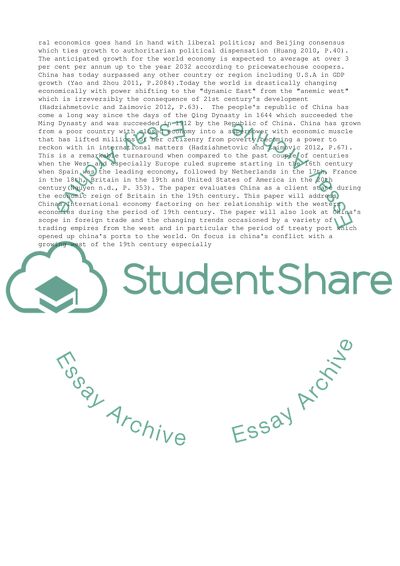Cite this document
(How far do you agree that Chinas economic relationship with western Essay, n.d.)
How far do you agree that Chinas economic relationship with western Essay. https://studentshare.org/history/1801870-how-far-do-you-agree-that-chinas-economic-relationship-with-western-economies-during-the-19th-century-can-be-characterised-as-those-of-a-client-state-to-what-extent-did-this-type-of-relationship-lead-to-chinas-economic-development-falling-behind-th
How far do you agree that Chinas economic relationship with western Essay. https://studentshare.org/history/1801870-how-far-do-you-agree-that-chinas-economic-relationship-with-western-economies-during-the-19th-century-can-be-characterised-as-those-of-a-client-state-to-what-extent-did-this-type-of-relationship-lead-to-chinas-economic-development-falling-behind-th
(How Far Do You Agree That Chinas Economic Relationship With Western Essay)
How Far Do You Agree That Chinas Economic Relationship With Western Essay. https://studentshare.org/history/1801870-how-far-do-you-agree-that-chinas-economic-relationship-with-western-economies-during-the-19th-century-can-be-characterised-as-those-of-a-client-state-to-what-extent-did-this-type-of-relationship-lead-to-chinas-economic-development-falling-behind-th.
How Far Do You Agree That Chinas Economic Relationship With Western Essay. https://studentshare.org/history/1801870-how-far-do-you-agree-that-chinas-economic-relationship-with-western-economies-during-the-19th-century-can-be-characterised-as-those-of-a-client-state-to-what-extent-did-this-type-of-relationship-lead-to-chinas-economic-development-falling-behind-th.
“How Far Do You Agree That Chinas Economic Relationship With Western Essay”. https://studentshare.org/history/1801870-how-far-do-you-agree-that-chinas-economic-relationship-with-western-economies-during-the-19th-century-can-be-characterised-as-those-of-a-client-state-to-what-extent-did-this-type-of-relationship-lead-to-chinas-economic-development-falling-behind-th.


